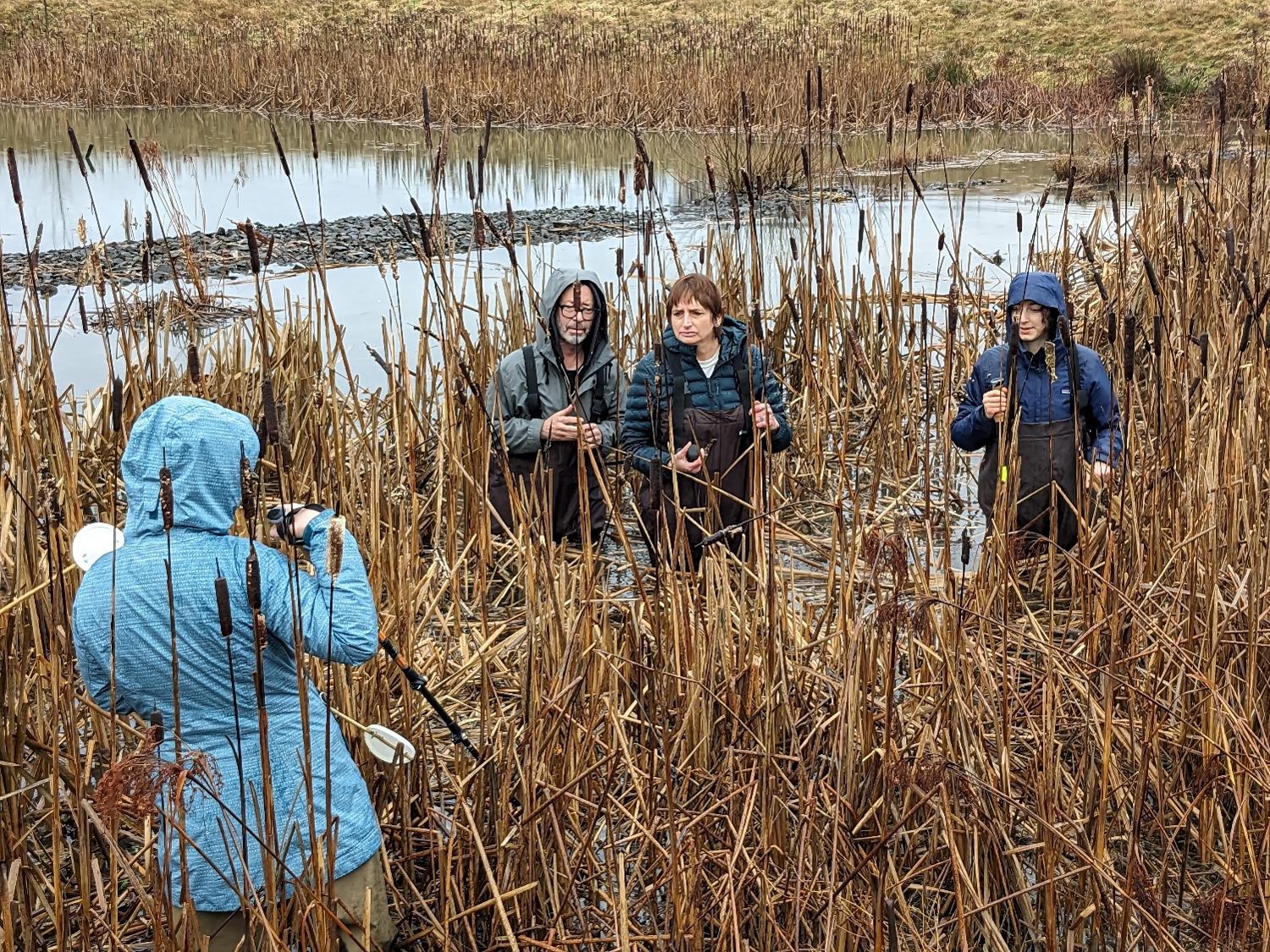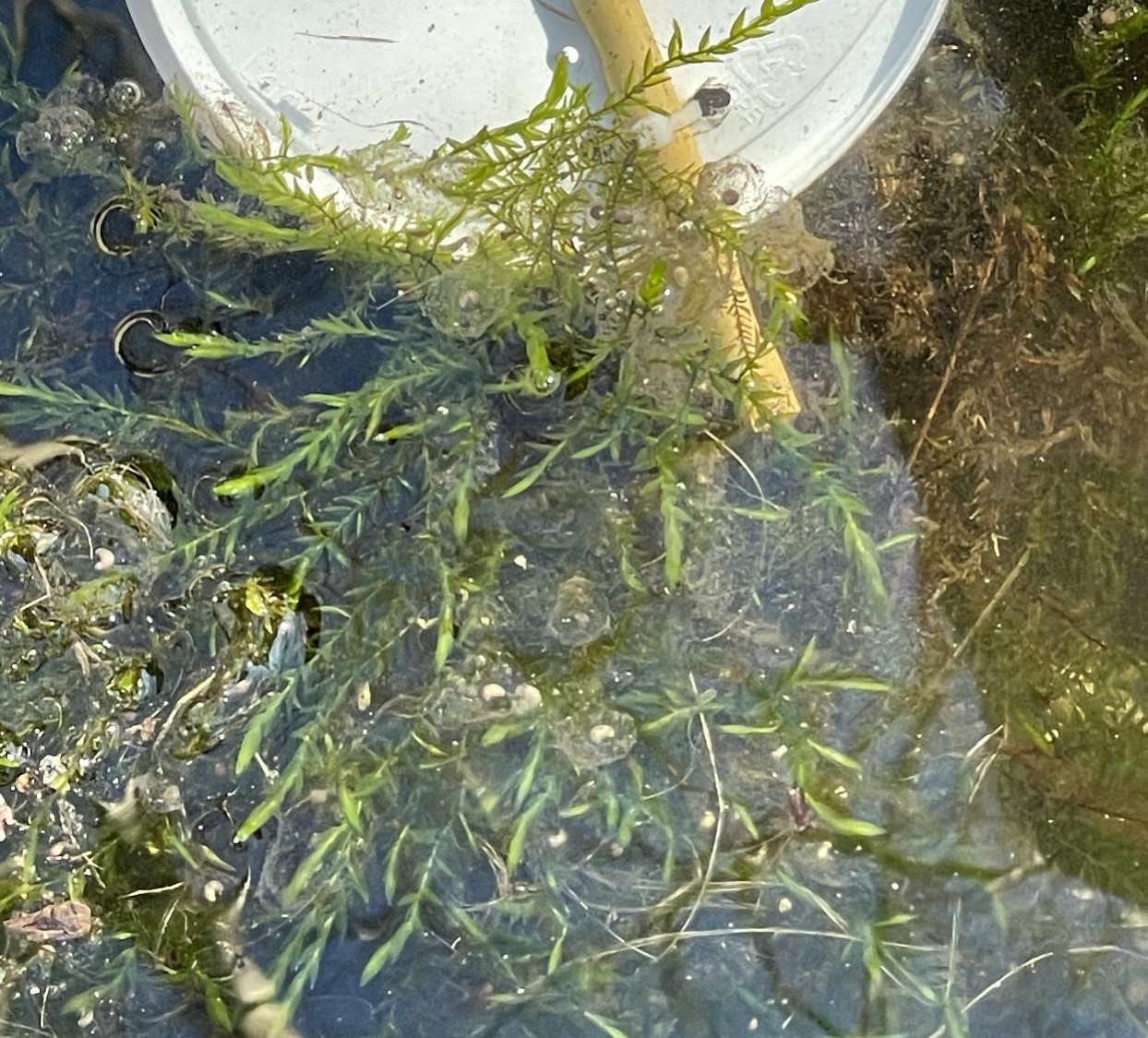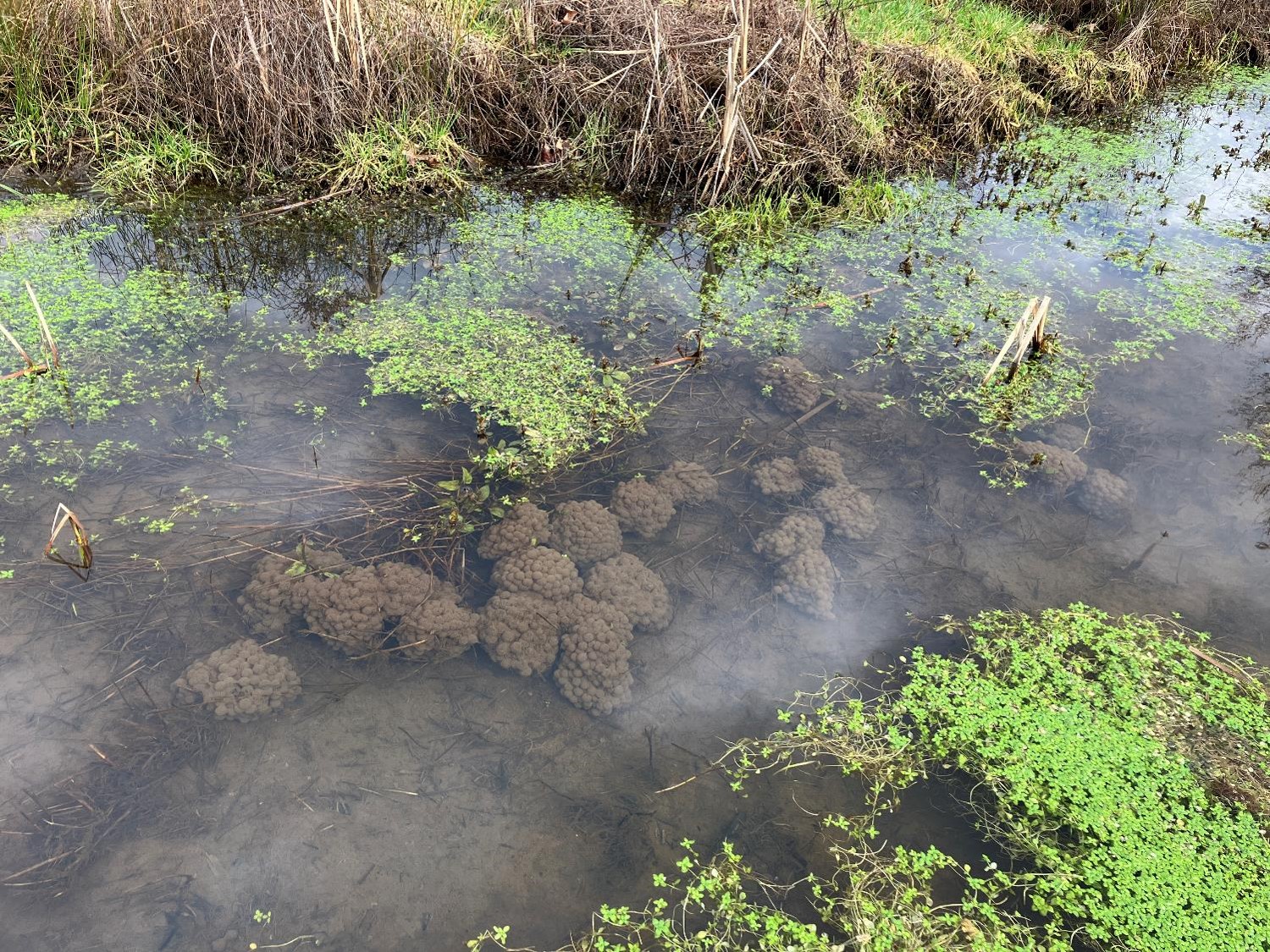Why are community science programs important for the watershed? With the help of volunteers, we’re able to collect data at a much larger scale! The data is used to guide restoration projects, build data banks, and alert experts to species that may be in our watershed. Our community science programs rely on community members to expand on the work of our partners and the Council. And they’re a fun way to volunteer with us!


The JCWC Amphibian Egg Mass Surveys (AEMS) are part of a regional effort that collects data on local amphibian species (Northwestern and Long-toed Salamanders; Northern red-legged frog and the Pacific treefrog) that can indicate healthy habitats. Saturday, January 27th some of the 50 AEMS volunteers for the 2024 season were able to put on waders and search a pond in Gresham for amphibian egg masses. This in person training allows time for each volunteer to test their gear and make sure that they are set to head out with their team to one of the multiple ponds we survey in Gresham in our partnership with the City of Gresham.
The early data coming in is exciting! We have egg masses! This means the ponds that were developed to increase amphibian habitats are doing their job. For some species, we are exceeding the amount of egg masses at certain ponds from what we anticipated. The long-toed salamander and the pacific treefrog eggs are plentiful in the Gresham ponds, with the latter appearing a bit earlier than some surveyors had observed in the past. Surveyors also reported that the red-legged frog, a species of concern, are finding the ponds an ideal habitat for their eggs. Stay tuned for more updates and for our next community science survey, Bird Surveys at Powell Butte!

